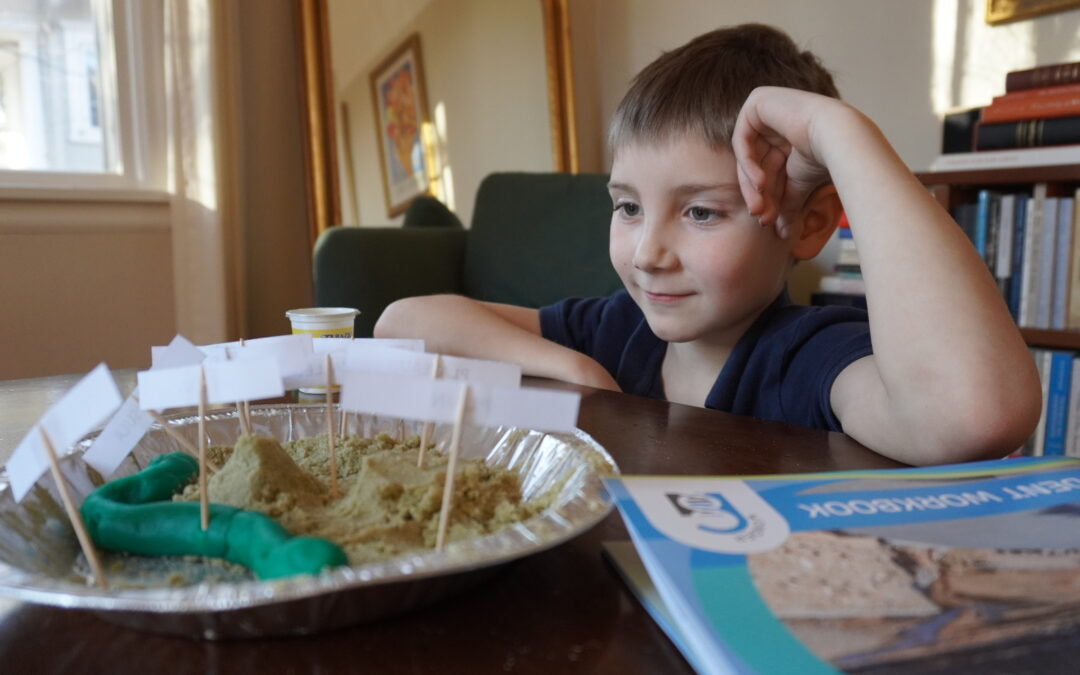Maybe you’re exploring a full-time career option or maybe you’re just really into archaeology, you’re interested in becoming a professional archaeologist.
What Do Archeologists Do?
Anthropologists and archeologists study the origin, development, and behavior of humans.
These positions typically work in research organizations, government agencies—such as the National Park Service— and consulting firms. Although most work in offices, some may analyze samples in laboratories or do fieldwork.
Disciplines of Archeology
There are two major disciplines of archaeology: prehistoric archaeology and historic archaeology.
Prehistoric archaeology deals with civilizations that did not develop writing. Artifacts from these past societies may provide the only clues we have about their lives.
Historic archaeology incorporates written records into archaeological research. One of the most famous examples of historic archaeology is the discovery Rosetta Stone, a large slab of marble discovered near Rashid, Egypt, by French archaeologists in 1799. It became an important tool of historic archaeology.
Historic archaeology contributes to many disciplines, including religious studies. The Dead Sea Scrolls, for instance, are a collection of about 900 documents. The tightly rolled parchment and other writing sheets were found between 1947 and 1956 in 11 caves near the Dead Sea. Among the scrolls are texts from the Hebrew Bible, written in Hebrew, Aramaic, and Greek.
Types of Archeology
- Classical Archaeology studies ancient Greek and Roman civilizations. The architecture, monuments, art, and philosophy from these civilizations can be studied in tandem under the Greco-Roman designation.
- Historical Archaeology studies the effects of past societies on modern living. Historical archaeologists commonly work with historians and anthropologists to study and interpret material artifacts such as books, seals, engravings, and drawings from around the world.
- Underwater archaeology focuses on submerged archaeological sites such as water-buried cities or shipwrecks. Underwater archaeologists work to obtain and preserve materials to better understand cultures and civilizations at the time of submersion or catastrophe.
- Ethnoarchaeology uses artifacts to form connections between the past and modern hunter-gatherer societies.
Should I Become an Archeologist?
As with any career path, there are some things about archeology you want to be naturally inclined in — or at least really good at — in order to be able to have a decent footing when you walk in the door.
Having these things under your toolbelt of interests and skills will be helpful:
- History is a passion of yours.
- Learning about various cultures and societies is something that never bores you.
- You have a love of traveling—you may get to visit archaeological sites.
- Spending time in a lab is not intimidating to you.
- You are good at analyzing data and writing reports.
- Patience comes easy to you.
- Reading and research are fun pastimes.
- The thought of getting your work published is exciting.
- You enjoy puzzles and intellectual conversations.
If any of these (the more the better!) resonate with you — then a career in archaeology may be right for you! The sooner you start to explore the ins and outs of a career, the more prepared you will be to make the right decisions that lead you on the path you want.
A Day in the Life of an Archaeologist
Curious what each day? Depending on your specific job description as an archaeologist, your day-in-the-life will look a bit different. Ultimately, the goal of an archaeologist is to leave sites as “untouched” as possible while also solving history’s mysteries! Working as an archaeologist will likely require some travel and fieldwork and excavating, but a lot of it is lab work along with research and review.
In general, here are a few things you can expect to do in your day-to-day life as an archaeologist:
- Writing reports and recommendations
- Analyzing artifacts and data
- Spending a lot of time in a lab
- Reading and researching people and their culture
- Reading and researching historical events
- Making unique connections through documents and science
- Publishing archaeological research in academic journals
- Collaborating with other experts
Archeologists who work in Cultural Resource Management have a great responsibility of ensuring that work done on or near archaeological sites complies with historical preservation laws.
Working in the archaeological field can come with some fun and exciting responsibilities like helping to fill in the gaps of our history!
Here is a really neat video on job breakdowns in archaeology.
Job Requirements of an Archaeologist
So now you have an overview of what an archaeologist’s work is like. But how did they get there?
In General:
- The U.S. Bureau of Labor Statistics (BLS) reports that becoming an archaeologist requires at least a master’s degree in archaeology; anthropology; or a related field, such as history.
- Internship and/or fieldwork
Now, let’s break that down a bit more:
Education:
- Anthropologists and archeologists need a master’s degree or Ph.D. in anthropology or archeology. Experience doing fieldwork in either discipline is also important. Bachelor’s degree holders may find work as assistants or fieldworkers. (source)
Experience:
- As with every career, this varies. We have to get experience somehow but we all have to start at the beginning. The more field experience you have and focused expertise, the more respected and sought after you will be for a particular project and/or need. While an archaeologist’s salary may be based on a combination of experience and education, the median annual wage for anthropologists and archeologists was $66,130 in May 2020.
Physical Aspects of an Archaeologist Career:
- This depends on your specific position, location, and project, but you would typically either primarily be outside doing fieldwork or historic preservation or inside in a lab, analyzing findings.
- When working outside as an archaeologist, there may be a lot of physical labor involved as well as the use of heavy machinery. The work can appear similar to work on a construction site.
- At other times, your work environment may include sitting at a computer, researching, and writing papers.
Want To Learn More?
This article should serve you as a good starting point to gauge your interest and possible commitment to working in the field of archaeology. If you are ready to dig in more, here are some suggestions to do that:
- Research blogs and youtube.
- Visit a local university and explore their programs.
- Ask for an informational interview.
- Find movies or documentaries about characters or real people that are archaeologists and imagine yourself in that role. (do remember though that a lot of the movies are fictional)
- Make a pros and cons list to determine if it’s the right fit for you.
- Check out course requirements for required degrees to see if you have any concerns.
- Work with a career counselor.
- Check out these articles in our resources center:
Before you go, check out this video called Archaeology: Reality vs Expectations:
BONUS:
Here are some careers that are similar to that of archaeology. You may want to dig into these too!
- Anthropologist
- Historian
- Author
- Teacher
- Geologist






